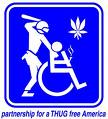 A question that I often hear is ‘Now that I have my medical marijuana card, I can’t be fired for failing a drug test, right?’ As with almost every medical marijuana question, the answer is ‘It depends on which state you live in.’ There are currently 14 states that have a medical marijuana program (Alaska, Hawaii, Washington, Oregon, California, Nevada, New Mexico, Colorado, Michigan, Montana, Maine, Vermont, Rhode Island, and New Jersey). Out of these 14 states, only Rhode Island protects against employer drug tests.
A question that I often hear is ‘Now that I have my medical marijuana card, I can’t be fired for failing a drug test, right?’ As with almost every medical marijuana question, the answer is ‘It depends on which state you live in.’ There are currently 14 states that have a medical marijuana program (Alaska, Hawaii, Washington, Oregon, California, Nevada, New Mexico, Colorado, Michigan, Montana, Maine, Vermont, Rhode Island, and New Jersey). Out of these 14 states, only Rhode Island protects against employer drug tests.
A patient can make an argument in Michigan, where the law states that a registered user can’t be subject to arrest, prosecution OR PENALTY IN ANY MANNER OR DENIED ANY RIGHT OR PRIVILEGE INCLUDING ACTION BY A BUSINESS. Later in the law it states “nothing in this act shall be construed to require an employer to accommodate the ingestion of marijuana in any workplace or any employee working while under the influence of marijuana.” Is simply allowing a patient to consume their prescribed medicine ONE TIME in a 30 day period an accommodation? When I think of an ‘accommodation for ingesting marijuana in any workplace, or working under the influence,’ I interpret this to say that you are not allowed to eat brownies at your desk, hit the bong in your car on your break, or before work. Essentially, you can’t come to work intoxicated, or get intoxicated during the workday. BUT I DO NOT INTERPRET THIS LANGUAGE AS STATING THAT YOU CAN BE FIRED JUST BECAUSE YOU HAVE CONSUMED MARIJUANA IN THE LAST 30 DAYS AS YOUR DOCTOR SUGGESTED. I guess it just depends on how persuasive your attorney is, and how biased the judge is.
In every other medical state, the words ‘no accommodation’ are included in the organic legislation. Unlike Michigan, they don’t include conflicting language suggesting otherwise. ‘No accommodation’ means that you can get a medical card, but if your employer finds out, you can be fired, no questions asked. Medical cards protect against prosecution in a court of law; nothing more, and nothing less. Many people have tried to challenge this in court at the state level, and in cases in Oregon, California, and Montana, the court always ruled in favor of the employer due to the ‘no accommodations’ clause in the original legislation.
If you don’t believe me, here is a quote from Colorado Springs lawyer Kevin Donavon. “There is no prescription, marijuana prescription. It’s a recommendation by the doctor and if you have that recommendation that allows you immunity from prosecution,” Donavan said. “But nothing in the law prevents a user from losing his or her job after a positive drug test.”
One might argue that the ‘Americans With Disabilities Act’ protects medical marijuana patients. This act is FEDERAL, not STATE. In order to sue for a violation of this act, a person would be going to federal court, where they do not recognize the medical properties of marijuana. The Department of Justice will not prosecute you for criminal offenses if you are in compliance with state medical marijuana laws, but that is not the same as them fighting for you to get your job back. The Americans With Disabilities Act protects against discrimination based off of a disability, not discrimination stemming from a ‘state recognized’ medicine.
So what can be done to change this? If every medical marijuana state went back in and changed the organic legislation to look like Rhode Island’s (in regards to accommodations), patients couldn’t be fired for failing a drug test due to cannabis. This requires lobbying state legislators to revisit the original bill, or getting enough signatures to put the revision on the ballot via the initiative system, at which point voters would have to pass it. This would change things even in states where court decisions have been ruled in favor of the employer. When the organic legislation is modified, all court rulings that pertain to the old legislation are voided. Check out the link below if you want to see another article about this issue.
https://www.inc.com/news/articles/2010/02/marijuana-law-confusing.html









